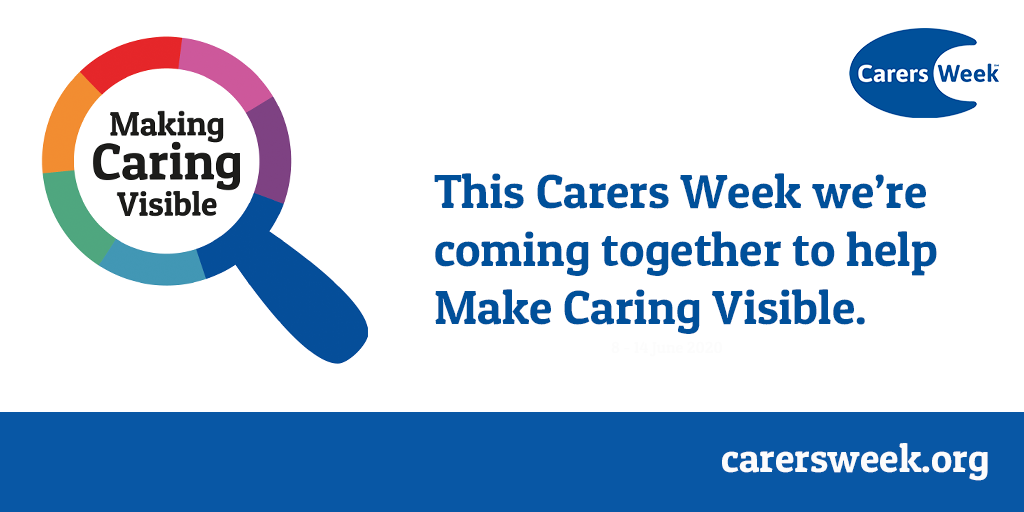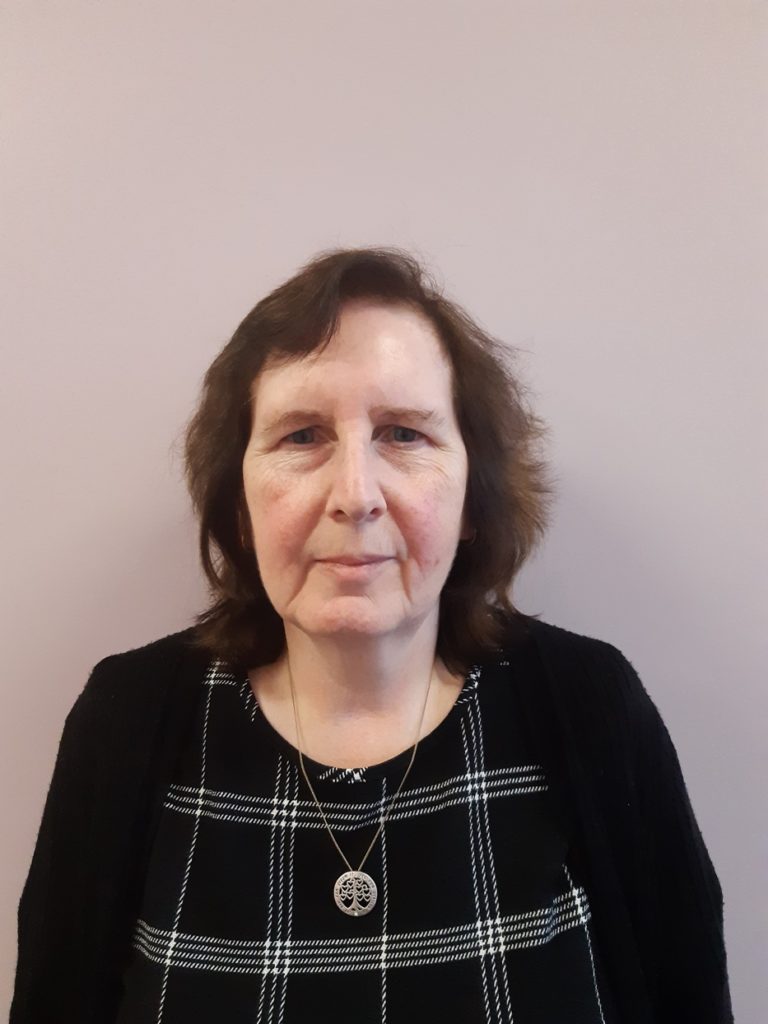Carers Week (running until 14 June 2020) is an annual campaign to raise awareness of caring, highlighting the challenges unpaid carers face and recognising the contribution they make to families and communities throughout the UK.
North Staffordshire Combined Healthcare NHS Trust is supporting the campaign on our social media channels this week, highlighting the vital role the carers we work with have and how we support them through our services and Proud to CARE values.
We have carers links established throughout Combined, and ‘Triangle of Care’ guidance is embedded across our organisation.

Jade Balderson, Occupational Therapist, The Sutherland Centre, North Staffordshire Combined Healthcare NHS Trust
“The role of friends and family in mental health recovery is a vital one, providing invaluable support and care to their loved ones alongside the formal services offering treatment and therapy.
“Not all friends and family members recognise their caring role and can go without information and support for themselves and their loved ones, so raising awareness of this topic is important.
“The Trust carers leads are a group of staff working together to drive forward positive changes and develop their services to ensure that carers are receiving the right support and can be actively involved in their friend or family members recovery journeys.
“Forming the link between the Trust’s carers initiatives and their team, we meet regularly to discuss and share best practice. As a result positive changes have been implemented within services; for example, at The Sutherland Centre we have developed new information packs which are easily accessed by friends and family members supporting those in our care. Information is sent out to patients as part of introductory packs – there is an information pack that can be given directly to patients and a friends and family folder is in the centre filled with informative information and leaflets that individuals can take away. We have further plans for a centre website which will contain a section for friends and family, filled with useful information, links and resources.”
Pauline's Story
“In 2016 my Dad was diagnosed with vascular dementia, Alzheimer’s Disease and end stage cancer of the kidney.
“Initially, we put the behavioural changes down to his age and him being a quirky Irish man and a bit of a character.

“I took over his care, which involved working with the memory clinic and social care and for a couple of years we plodded along with the help of a carers company, funded by his attendance allowance.
“Dad’s condition steadily deteriorated and he became more confused and more isolated in his own world. He then had a stroke and was admitted to the stroke ward at Royal Stoke University Hospital, who were amazing with him.
“From there he was moved to a care home to be assessed – this was difficult as they were busy with lots of patients and were supposed to be assessing him as he would not be going home again. After five weeks there was an incident and it was deemed that he needed sectioning.
“This was quite a shock as I and his carers had no problem with Dad – he wasn’t violent but since the stroke he had lost his vision and could only see shapes which caused him to grab people coming towards him.
“A decision was made for him to move to Harplands Hospital. I was mortified, I knew that it was known for Mental Health and addiction problems. Dad was very confused and I was very anxious.
“We were greeted by a lovely young man who took us to a room where dad was going to be staying and we were offered drinks of tea and biscuits. I was able to explain about my dad’s condition and needs. I remember saying that his sight was limited and a mat being put in front of his bed and thinking he will not be able to find the bed.
“I arrived at visiting time to find dad in a chair and chatting quite happily to the staff. I had provided a life book I had put together at the home which would help the staff get to know dad and his room was made a bit more friendly. I was welcomed to come any time and help with dad’s care.
“The hardest thing I found as dad was there was that he had started to refuse his medication (my dad was dying) and I discussed this with one of the senior staff nurses. She listened and said that she would arrange a meeting with the Doctors for me.
“In my role at work I attend a lot of meetings and am quite used to the way they are set out, so to be on the other side of things when the meeting is about you and your loved ones can be very intimidating.
“I felt that I had to fight for my dad’s rights I knew he was dying and wanted him to just be made comfortable. The ward staff were amazing and supportive of me. The next thing I faced was that because he was dying it was suggested he go to a care home for the last two weeks of his life.
“Harplands was the right place for him as he was loved by everyone and the staff were supportive of me and my family. In the end dad went downhill quickly and surrounding by the love of the staff and his family he passed away peacefully.
“The staff showed me and my family compassion and love and nothing was too much for them. I was so impressed that I asked about how I could be a volunteer as I wanted to give something back.
“Out of the whole of the three year journey of looking after my dad, Harplands was in fact one of the most positive things to happen in our lives. I hope to be able to help other families by sharing my experience and supporting them in their journey.
“I now volunteer once a week for a few hours and hopefully more when I can on the ward, where I feel I have an extended family and who knows it may lead towards a career change.
